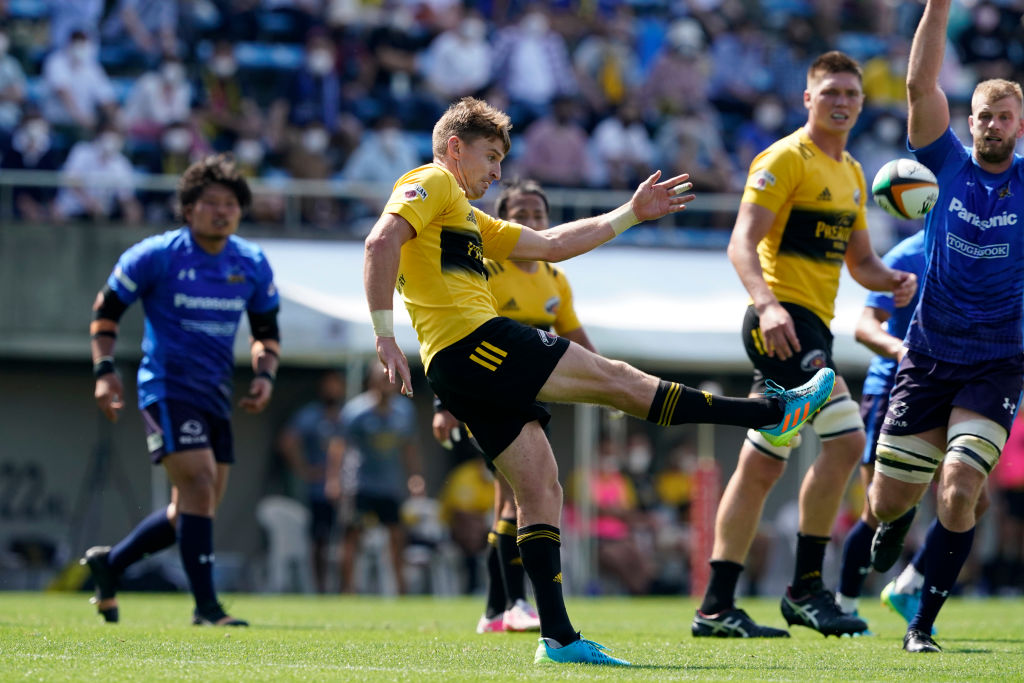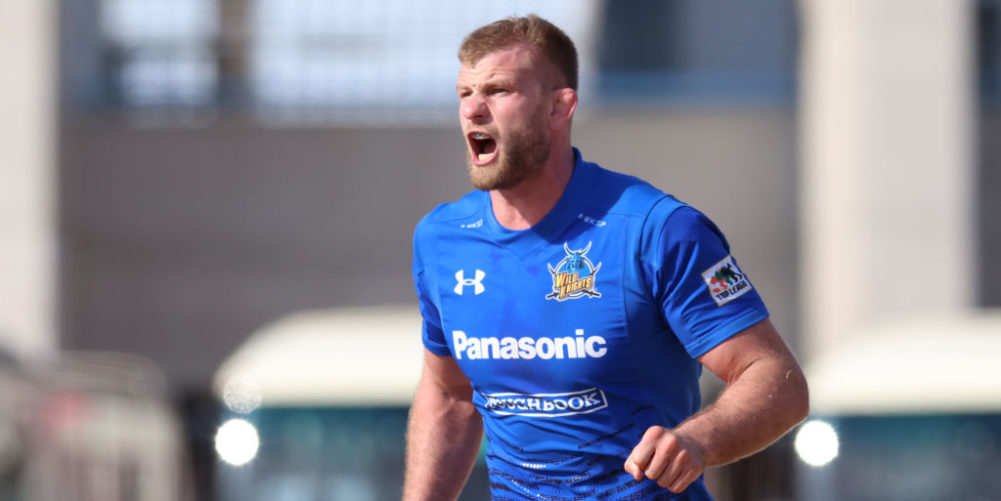Japan corresponent Matt McIlraith gives his verdict on this season's Top League
Wayne Smith likened Japan's Top League to the early days of Super Rugby. Fastpaced, highly skilled, and played with a refreshing openness.
The two-time Rugby World Cup-winning All Black assistant coach is well placed to judge. As Crusaders coach, he won the third and fourth editions of Super Rugby in 1998 and 1999.
More recently, as director of rugby, he won the 2019 Top League title with Kobe.
Last weekend, Smith's former Canterbury teammate and good friend Robbie Deans, won the last semi-professional Top League final with the Panasonic Wild Knights. Featuring England lock George Kruis, and former Wales centre Hadleigh Parkes, Panasonic put on a masterclass.
The Wild Knights executed the Deans' ‘how to win a final' blueprint to a tee, as they shut down the previously all-conquering Suntory attack, while converting their own pressure into points, to take the crown with a 31-26 victory.
The title was Deans' fourth in the Top League, sitting alongside his five in Super Rugby with the Crusaders, and what was only Australia's third Tri Nations victory, when his Wallabies upset the All Blacks in the 2011 decider.
Last weekend, the scoreline was slightly deceptive. Most of Suntory's points came with a rush in the final ten minutes.
It took until then for an attack that had scored 73 tries in nine previous games, and was orchestrated by fly-half Beauden Barrett, to finally break free of the strait jacket the Wild Knights had imposed.
Yet, by the end, despite the significance of the occasion, the two teams had shared seven tries.
This was five more than the Champions Cup final, which was played on the same weekend, and four and five more than had been accrued in the Super Rugby Aotearoa (NZ) and Super Rugby AU (Aus) finals, respectively.
The Japanese play with freedom, Smith said, and to express themselves. It comes with an ‘innocence' that reflects the players' background, in what up until now has been a semi-professional competition.
Not that the footy is easy. Ask Parkes and Kruis how their bodies were feeling after the final. With mor than 150 foreign stars spread across the 16 participants, over 20 of whom had appeared for visiting nations at the 2019 Rugby World Cup, the club game in Japan is getting serious.
A former Wallaby estimated to me that the top four or five Japanese clubs would beat most, if not all, of the field in his homeland Super Rugby AU competition.
They may get their chance. A cross-border competition is a distinct possibility once Japan's new fully professional championship beds in.
While a strictly enforced quota will ensure that – unlike the Top 14 in France – the advancement and future development of Japanese-eligible players is protected, the standard of competition is only going to continue to rise, especially as the club's grow their playing depth.

Five Reasons Why Japan is “The Place to Be”
1. Playing style
The game in Japan is fun. Forget the trench warfare and physical slog of Europe, or the brutal and bone-crunching confrontation now prevalent in New Zealand. In Japan, rugby is based on speed. Run the opposition ragged and showcase your skills. The physical confrontation still features, but only to get play started.
2. Length of season
Unlike the northern hemisphere competitions, and their trans-Tasman counterparts, the Japanese season does not drag on interminably. That is great news for the players, who can go through a proper and thorough pre-season, report for duty in fine fettle physically, and then play a short, sharp, campaign. This year the Top League started on February 20, with the final on May 23. Ask your average Premiership player how long the season should be… three months, anyone?
3. Financial security
The pandemic undoubtedly brought some businessmen club owners close to the financial wall. So, who do you want ‘watching your back' financially? A businessman club owner or a massive global corporation like Panasonic? Ask George Kruis, left.
4. Star power
Once, Japan was considered a retirement home, a great place to go to do a bit of ‘banking' for the ‘post footy' lifestyle fund. Not anymore. George Kruis found himself up against Brodie Retallick, left. Greig Laidlaw had to deal with Beauden Barrett. Willie le Roux was running around in the same team as Kieran Read and Michael Hooper. The stars are coming to play in Japan, many of them as a prelude to Test duty with their national sides later in the year. That is a trend that is only going to continue.
5. Lifestyle like no other
Ok, it is not to everyone's taste, but most players who head to Japan enjoy the experience. For all the high-rise buildings, and frantic pace in the big cities, there is also a relaxing feel to much of the country.



























